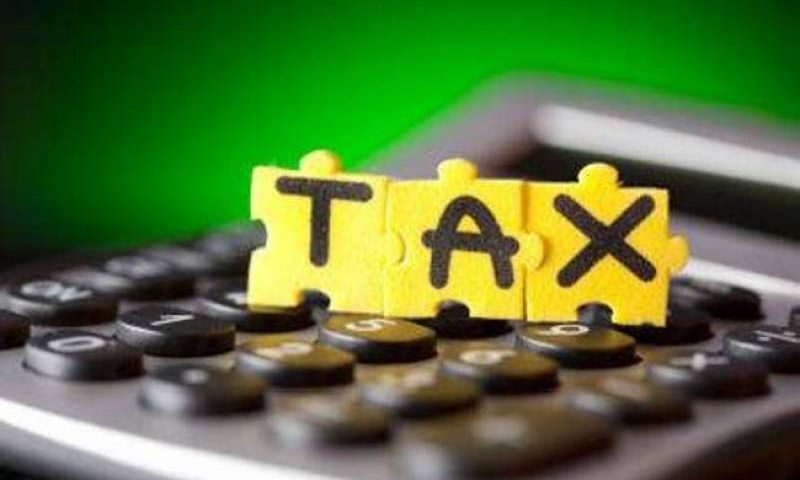Phone and Internet Tax Deductions

Personal Services Income
July 9, 2016
ATO Audits 2016
July 9, 2016Claiming mobile phone, internet and home phone expenses
The ATO has released a fact sheet detailing how people can claim work-related telephone and internet usage. Essentially, it requires individuals maintaining a 4-week journal to enable them to apportion the charges between work and personal use. However, employees are not mentally attuned to this type of routine of maintaining such a journal. Having said that, clients will nonetheless count on their tax agent to claim the maximum amount possible.
Since this unfortunate document has witnessed the light of day, tax agents will have to advise all those clients who made an identical claim in their 2015 income tax return, that they’ll have to maintain a 4-week journal – on a yearly basis!
The fun will commence the coming year when the clients come without a journal, as well as expectations of a large tax refund!
If you make use of your personal phone(s) or the internet for your work use, you might be able to claim a tax deduction if you paid for these expenses and hold records to back up your claims. If you are using your phone(s) or the internet both for work and personal use, you need to determine the proportion that fairly pertains to work usage.
Substantiating your claims
You must maintain records for a 4-week time period in every financial year to claim a tax deduction in excess of $50. These records can include journal records, including digital records, and bills. Proof that the employer needs you to work from home or use your phone for work calls will also assist you to illustrate that you’re eligible for a tax deduction.
When can’t you claim a tax deduction for the phone?
Workplace supplied phone
When your workplace gives you a mobile phone for work use or will pay for the usage (calls, texts, data) then you certainly are not entitled to claim a tax deduction. Also, when you pay for the usage and are also later reimbursed by the workplace, you are unable to claim a tax deduction.
How you can apportion work usage of your phone
You need to establish your work usage by using a reasonable basis.
Minor Usage
If the work usage is minor and you’re not claiming a tax deduction greater than $50, you can claim as per the following, without the need to analyse your costs:
$.25 for landline calls,
$.75 for mobile calls, and,
$.10 for SMS messages.
Usage itemised on the bills
For those who have a phone plan where you get an itemised monthly bill, you must figure out your proportion of work usage over the 4-week representative time period which could then apply to the entire financial year.
You will need to determine the proportion by using a reasonable basis. This might include:
– the number of work message or calls made as a proportion of total message or calls
– the time spent on work related calls as a proportion of your overall phone calls
– the quantity of data downloaded for work reasons as a proportion of your total downloading
Example – calls itemised on the bills
Ann has a $80 a month mobile phone plan, that gives her $500 for calls and 1.5GB of internet data. She gets a monthly bill which itemises all her calls and provides her with internet data usage.
Over the 4-week period, Ann determines that 20% of her phone calls are work-related. She worked 11 months during the financial year. Ann can claim a tax deduction of $176 on the income tax return (20% x $80 x 11 months).
Usage not itemised on the bills
In case you have a phone plan that you do not get an itemised monthly bill, you can establish work use by maintaining a record of your entire phone calls spanning the 4-week representative time period and determine your claim by using a reasonable basis.
Example – non-itemised bill
John has a pre-paid phone plan that costs $50 each month. John doesn’t get a bill so he maintains a record of his phone calls for a 4-week period. In this 4-week period, John makes 25 work phone calls and 75 personal calls. John worked for 11 months throughout the financial year, with 1 month of leave.
John works out his work use as 25% (25 work related calls /100 total phone calls). He can then claim a tax deduction of $138 on the income tax return (25% x $50 x 11 months).
Bundled Phone and Internet Plans
Phone and internet services are frequently bundled in 1 plan. When you’re claiming tax deductions for work-related usage of more than one service, you must apportion your expenses according to work usage for every service.
If other people in the family also use the services, you will need to take into consideration their usage in your calculations.
For those who have a bundled plan, you must determine work usage for every service over a 4-week period during the financial year. This will help you to establish your pattern of work usage which can then apply to the entire year.
A reasonable basis to determine work-related usage could include:
Internet
– the quantity of data downloaded for work as a portion of the total data downloaded by all people in your family
– any extra expenses incurred on account of your work-related usage – for instance, your work-related usage leads to you going above your monthly limit.
Phone
– the number of work-related phone calls made as a proportion of total phone calls
– the length of time spent on work phone calls as a proportion of your total phone calls
– any extra expenses incurred on account of your work-related usage
Example 1 – apportioning bundled up services
Sue has a $100 monthly landline and internet service bundle. The monthly price of Sue’s telephone service in the package deal is $40, and her the internet is $60. By adding her cell phone plan of $90 a month, Sue gets a $10 monthly discount. Her total expenses for all 3 services are $180 monthly.
Sue worked for 11 months in the financial year, with 1 month of leave.
According to her itemised accounts, Sue ascertains the work related usage of her cell phone at 20%. Sue also makes use of her internet for work purposes and according to her use she establishes that 10% of the internet usage is for work. Sue doesn’t use the landline for any work calls.
Since the 3 services are all in a package deal, Sue can compute her work usage as follows:
Step 1 – calculate the value of every element
Cell phone – $90 each month less the $10 discount = $80 a month
Internet – $60 a month as listed on the bill
Landline – no need to calculate the cost as she doesn’t use it for work calls. Sue is not entitled to claim landline cost as she didn’t use it for work purpose.
Step 2 – apportion the work related usage
Internet use – 10% work usage x $60 per month = $6 a month x 11 months
Total claim $66
Mobile usage – 20% work use x $80 = $16 a month x 11 months
Total claim $176
Sue is entitled to claim a tax deduction of $242 for the whole financial year ($66 internet + $176 mobile )
Example 2 – apportioning bundled services
Dee pays $90 a month for landline and home internet. There is not a clear breakdown for the price of each service. By maintaining a record of the phone calls Dee makes over 4 weeks, he calculates that 25% of his phone calls are work purpose. Dee also maintains a record for 4 weeks of the internet data usage and determines that 30% is for work.
Dee worked for 11 months in the financial year, with 1-month leave.
Without a clear breakdown of the costs, it is fair to allocate 50% of the total price to every service.
Step 1 – work out the value of each service
Internet – $45 a month
Home phone – $45 a month
Step 2 – apportion the work related usage
Landline – 25% work use x $45 a month x 11 months = $124
Internet – 30% work use x $45 a month x 11 months = $149
Dee is entitled to claim a deduction of $273 ($124 + $149) for the respective financial year.
In case you bought a mobile phone, tablet or any other electronic device and utilise it for work, you can claim a tax deduction for a percentage of its cost.
Contact our expert Cranbourne tax agents on 1300 300 106 to find out if you are entitled to claim a tax dedution for the phone and internet expenses.





